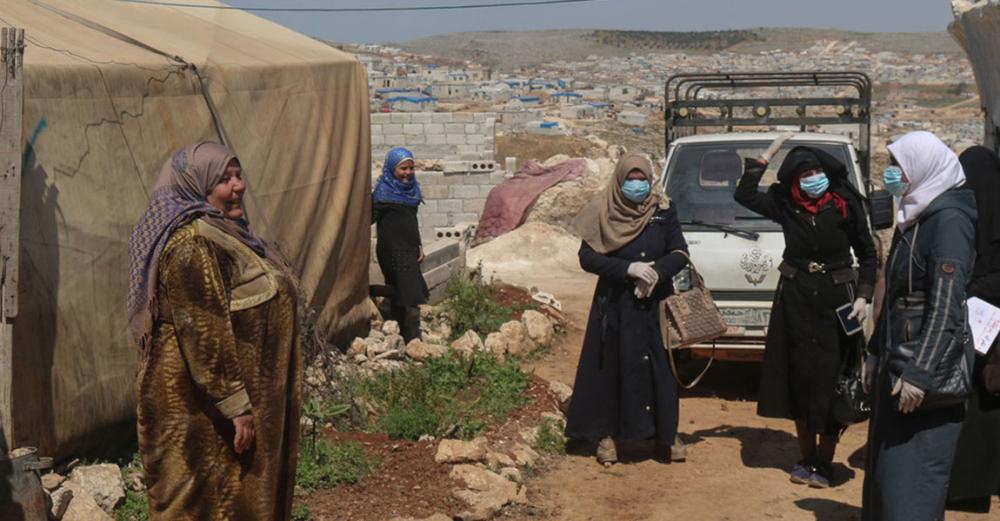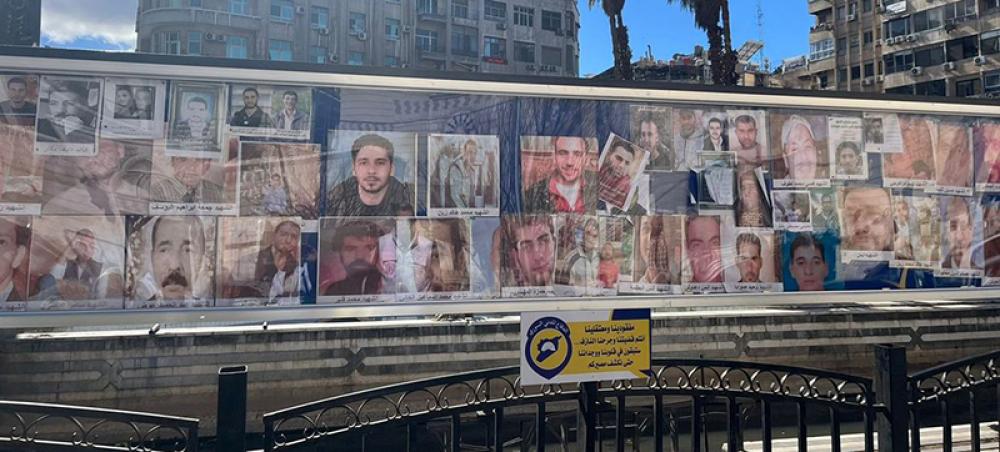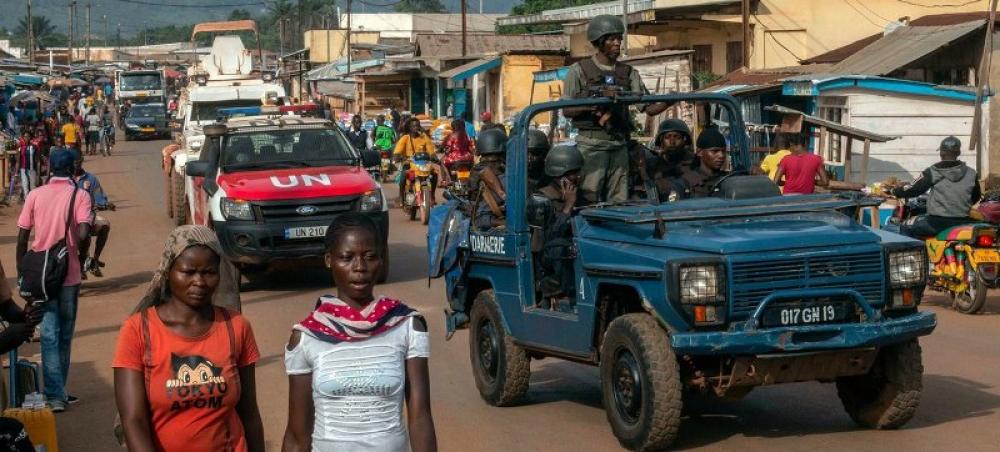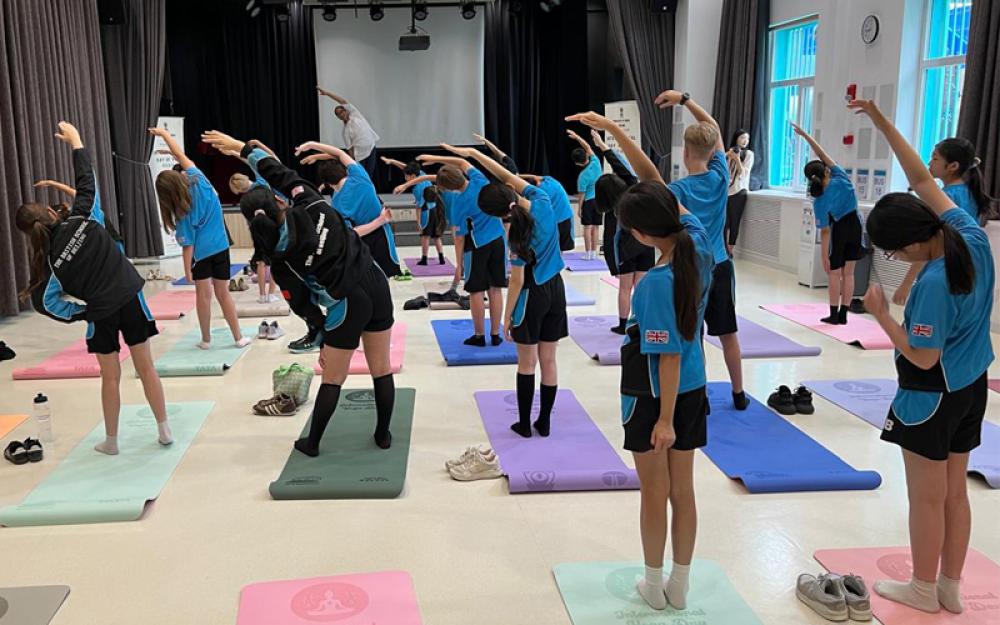Just Earth News | @justearthnews | 01 Sep 2020, 09:06 am Print

New York: COVID-19 is having a dramatic impact on health services in Syria, where limited testing is obscuring the real extent of the pandemic, the UN’s Deputy Emergency Relief Coordinator said on Thursday.
“Reports of healthcare facilities filling up, of rising numbers of death notices and burials, all seem to indicate that actual cases far exceed official figures,” Ramesh Rajasingham told the UN Security Council.
"In Al Hol camp in NE Syria, 12 health facilities had to suspend operations this month due to staff becoming infected or lack of personal protective equipment."
Briefing the 15 member body on the humanitarian situation in Syria, he also stressed& that humanitarian assistance must be sustained in the face of growing food insecurity, although a surge in the price of food is easing as the value of the Syrian pound stabilizes.
In the first half of 2020, humanitarian operations reached an average of 7.2 million people each month, with food assistance being expanded to reach vulnerable people in COVID-19 quarantine centres.
Mr. Rajasingham also noted the challenge of delivering humanitarian aid since the Council adopted resolution 2355 (2020) on 11 July, which reduced to one – Bab al-Hwa – the number of authorized crossing points for aid on the Turkey-Syria border.
A UN convoy bound for northern rural Aleppo set off on 28 July via Bab al-Hwa took 11 hours to reach its destination after many delays, lack of approvals from various parties and poor road conditions, he said
Travel time from the now-closed Bab al-Salam crossing point would have been about two hours, he added.
‘Widespread’ COVID-19 transmission
Mr. Rajasingham said that official COVID-19 figures suggest that community transmission of the coronavirus is widespread in Syria, with the majority of the 2,440 cases confirmed by the Ministry of Health not traceable to any known source.
The UN World Health Organization (WHO) on Thursday put the number of COVID-19 deaths in Syria at 98, with 75 new cases reported.
Mr. Rajasingham, who is also UN Assistant Secretary-General for Humanitarian Affairs, emphasized that rising patient numbers are putting more pressure on Syria’s fragile healthcare system.
“Many are reluctant to seek care at medical facilities, leading to more severe complications when they do arrive,” he told Council members, meeting via video-teleconference due to the pandemic.
Health workers still lack sufficient personal protective equipment and several facilities have suspended operations due to a lack of capacity and staff falling sick from the coronavirus, he said.
The situation is particularly worrying at the Al Hol camp for refugees and internally displaced persons in north-east Syria, where WHO is leading an interagency mission this week to see how healthcare there can be improved despite COVID-19.
Al Hol shelters more than 65,000 people, 94 per cent of them women and children, the Office of the United Nations High Commissioner for Refugees (UNHCR) says. Between 6 and 10 August, eight children under the age of five died in the camp from various causes, Mr. Rajasingham said.
He also said that COVID-19 is impacting some commercial supply chains in Syria – together, to varying degrees, the devastating explosion in the Port of Beirut on 4 August.
Turning to the protection of civilians in Syria, nine years after opposition to President Bashar al-Assad’s government turned into all-out war, Mr. Rajasingham said that a ceasefire in the north-west is largely holding, “but it would hardly seem that way for civilians in frontline areas”.
Hostilities increased in July and August, with more shelling reported in Idleb, Lattakia, Hama and Aleppo governorates, and the Office of the United Nations High Commissioner for Human Rights (OHCHR) recording at least 10 civilian deaths – including three children - in the so-called “de-escalation area”.
Explosive remnants litter the country
Every month is also seeing a steady stream of civilian casualties due to explosive hazards that contaminate large parts of Syria, he said. Many of those killed or injured are children playing or picking through rubble.
He pointed to an incident on 12 August when a group of around 70 people, including families with children, travelling with local smugglers, walked into an area littered with explosive remnants outside Aleppo.
“They triggered explosions that, in turn, drew fire from armed actors in the area,” he said. “While some bodies of the victims have been recovered, it is unclear how many were killed.”
- Every hour, 100 people die of loneliness-related causes, says WHO
- DR Congo: New initiative to eliminate HIV in children ‘a beacon of hope’, says UN
- WHO study shows tobacco control efforts protect three-quarters of the world’s population
- Drinking coffee can help you live longer, a new study reveals
- New study finds women who work night shifts are more likely to have asthma






